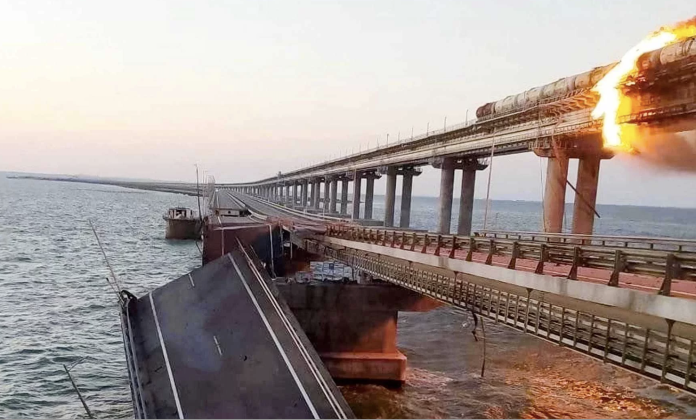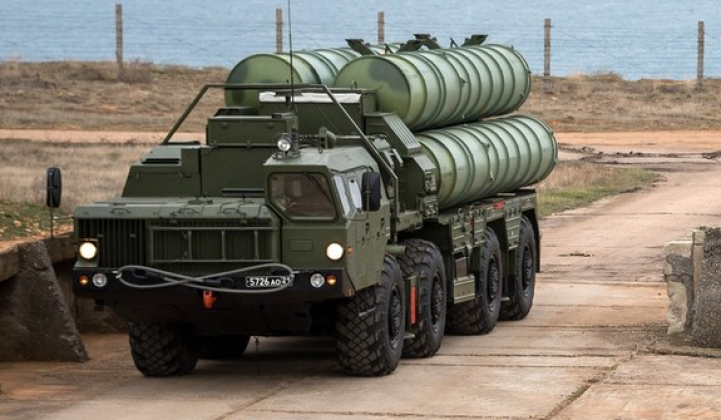News
Attacks to ‘Choke the Life’ From Crimea and Leave it ‘Uninhabitable’ Proposed at Warsaw Security Forum
Speaking at the Warsaw Security Forum, former British Defence Secretary Ben Wallace has called for a major escalation in attacks on Crimea to severely disrupt civilian life on the strategically located peninsula. Considered one of the most influential figures in the British defence establishment, Wallace stressed that countries across the Western world needed to support efforts to ensure Crimea was “not inhabitable.” “We have to help Ukraine have the long-range capabilities to make Crimea unviable. We need to choke the life out of Crimea,” he stated, adding: “If it is not inhabitable or not possible for it to function… I think, if we do that, [Russian President Vladimir] Putin will suddenly realise he’s got something to lose.” He suggested a prioritisation of attacks on the Kerch Strait Bridge connecting Crimea with the Krasnodar region of the Russian mainland, with the $3.6 billion dollar infrastructure project having been lightly damaged during attacks in October 2022 and July 2023, while multiple reported further attacks have been thwarted.

Crimea is claimed by both Russia and Ukraine, and was integrated into the Russian state in 2014. The disputed peninsula has been particularly intensively targeted in Ukrainian strikes, and although the large majority of reported attacks have been intercepted, several have succeeded. Targets have included beaches, key infrastructure, as well as military targets including air defence systems. A particularly large recent attack on June 28 targeted Kirovske Airfield, destroying a number of helicopters including at least one Mi-28 attack helicopter. One of the most destructive strikes was launched in May 2024 using the U.S.-supplied ATACMS, and destroyed at least two MiG-31 interceptors. As Ukrainain ground forces sustain extreme losses across the frontlines from early 2025, and as the country faces prospects of a collapse of its forces and its economy, the possibility has grown that countries in the Western world will seek to support a major escalation in attacks launched from Ukraine against key Russian infrastructure. Such attacks could be seen as a means to force Moscow to suspend hostilities, allowing the Ukrainain Army much needed time to recover.

Crimea was heavily fortified from the mid-2010s particularly against possible air attacks, with high concentrations of the Russian Aerospace Forces’ most advanced surface-to-air missile systems deployed there. In response to sustained attacks and large scale deliveries of Western ballistic and cruise missiles to Ukraine, the strength of Crimea’s defences has over the past 18 months been improved considerably. Recently observing this trend, Ukrainian Navy spokesperson Dmytro Pletenchuk noted in late September:
“I don’t know what new air-defence systems the Russians could still deploy in Crimea. They have already placed there everything they possess. The Russians have long concentrated S-500 Prometey systems there. For them, Crimea has always been and remains a crucial location in every sense. The peninsula has strategic and geopolitical significance for them. They will cling to it until the very end. They are reinforcing Crimea’s air defence far more than that of their oil refineries. Still, this can wait: until Ukrainian ground forces reach the area, there is no talk of de-occupation.”
Although Western sources are generally pessimistic regarding the possibility of seizing Crimea and reintegrating it into the Ukrainian state, maximising damage has the potential to increase pressure on the Russian state to agree to Western terms for freezing hostilities. This in turn could place Ukraine in a significantly stronger position to resume hostilities at a later time.












